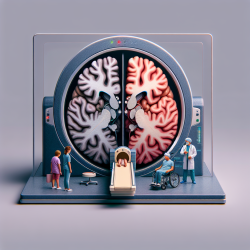In the rapidly evolving landscape of education, the role of technology has become increasingly significant. For occupational therapists, especially those working in special education settings, integrating technology into therapy sessions can be a game-changer. This blog explores how leveraging technology can enhance the effectiveness of online therapy, providing a detailed look at the tools and strategies that can help occupational therapists reach their full potential.
The Role of Technology in Occupational Therapy
Technology has transformed various aspects of our lives, and occupational therapy is no exception. The use of digital tools and platforms has made it possible to deliver high-quality therapy services remotely, breaking down geographical barriers and ensuring that students receive the support they need. Here are some key ways technology is making a difference:
- Accessibility: Online platforms make therapy accessible to students in remote or underserved areas.
- Flexibility: Virtual sessions can be scheduled at convenient times, accommodating both therapists and students.
- Engagement: Interactive tools and applications can make therapy sessions more engaging and enjoyable for students.
- Data Tracking: Digital platforms allow for easy tracking of student progress and outcomes.
Tools and Strategies for Effective Online Therapy
To maximize the benefits of online therapy, occupational therapists need to be equipped with the right tools and strategies. Here are some recommendations:
1. Use Interactive Platforms
Interactive platforms like TinyEYE provide a comprehensive suite of tools designed specifically for online therapy. These platforms offer features such as video conferencing, interactive games, and digital whiteboards, which can make therapy sessions more dynamic and effective.
2. Incorporate Assistive Technology
Assistive technology devices, such as adaptive keyboards, screen readers, and speech-to-text software, can help students with disabilities participate more fully in online therapy sessions. These tools can be customized to meet the individual needs of each student, ensuring that they receive the most effective support possible.
3. Develop Personalized Therapy Plans
One of the key advantages of online therapy is the ability to tailor sessions to the specific needs of each student. By using digital assessment tools, occupational therapists can develop personalized therapy plans that address the unique challenges and goals of each student. This individualized approach can lead to more effective and meaningful therapy outcomes.
4. Engage Parents and Caregivers
Involving parents and caregivers in the therapy process is crucial for success. Online platforms make it easy to share progress reports, provide training, and communicate regularly with families. This collaborative approach ensures that therapy continues beyond the virtual sessions and that students receive consistent support in their daily lives.
Overcoming Challenges in Online Therapy
While the benefits of online therapy are significant, there are also challenges that occupational therapists may face. Here are some common challenges and strategies to overcome them:
1. Technical Issues
Technical issues, such as poor internet connectivity or software glitches, can disrupt therapy sessions. To mitigate these issues, therapists should ensure they have a reliable internet connection and familiarize themselves with the technology they are using. Additionally, having a backup plan in place can help minimize disruptions.
2. Maintaining Engagement
Keeping students engaged during online sessions can be challenging. To address this, therapists can use a variety of interactive tools and activities to keep sessions interesting. Regularly changing the format and incorporating fun elements can help maintain student interest and motivation.
3. Building Rapport
Building a strong therapeutic relationship is essential for effective therapy. While this can be more challenging in a virtual setting, therapists can use techniques such as active listening, empathy, and positive reinforcement to build rapport with students. Consistent communication and follow-up can also help strengthen the therapist-student relationship.
The Future of Online Therapy
As technology continues to advance, the potential for online therapy will only grow. Innovations such as virtual reality, artificial intelligence, and machine learning are already being explored in the field of occupational therapy. These technologies have the potential to revolutionize the way therapy is delivered, making it more effective, efficient, and accessible.
For occupational therapists, staying informed about the latest technological advancements and continuously seeking professional development opportunities is crucial. Attending conferences, participating in webinars, and reading relevant publications can help therapists stay up-to-date with the latest trends and best practices in online therapy.
Conclusion
Technology has the power to transform the field of occupational therapy, making it possible to deliver high-quality, personalized therapy services to students regardless of their location. By embracing technology and leveraging the tools and strategies available, occupational therapists can enhance their practice, overcome challenges, and achieve self-actualization in their professional roles.
At TinyEYE, we are committed to supporting occupational therapists in their journey towards providing exceptional online therapy services. Our platform offers a range of features designed to make therapy sessions more effective and engaging. Together, we can create a brighter future for students in special education.










